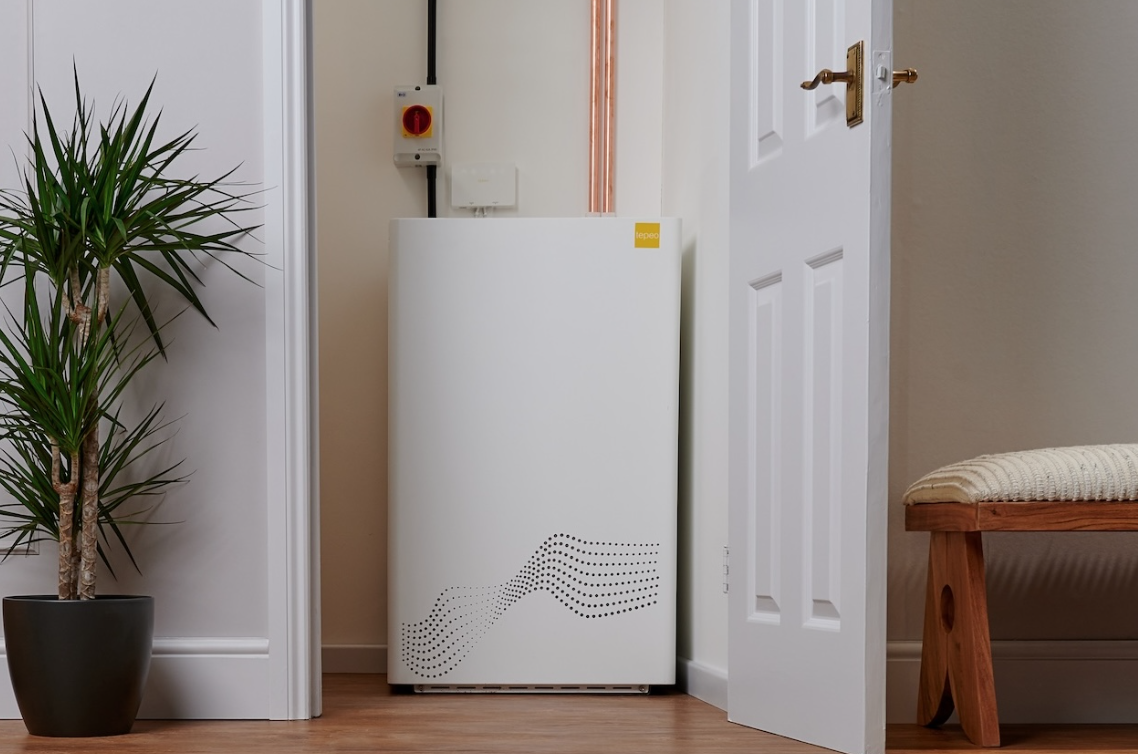tepeo Rethinks Strategy Amid Policy Challenges and Lack of VAT Relief for Heat Batteries
tepeo, a leading innovator in low-carbon heating technology, has announced a shift in its business strategy due to delays in critical policy and regulatory changes. The company had anticipated VAT relief for heat batteries in the Autumn Budget, supported by cross-party MPs and industry stakeholders. However, the technology remains excluded from such benefits.
This decision highlights the challenges faced by the low-carbon heating sector, where investor confidence is waning due to the absence of subsidy support and tax relief for innovative solutions like heat batteries. These obstacles place many scale-up businesses striving for decarbonisation in a precarious position.
Despite the current hurdles, tepeo remains optimistic that necessary changes will be addressed in the next fiscal event or the upcoming Warm Homes Plan. However, the delay in implementing these measures has created significant challenges for the sector, emphasizing the urgent need for supportive policy frameworks to drive the transition to low-carbon heating solutions.
tepeo CEO Johan du Plessis commented: “It’s with a heavy heart that we’ve had to announce a restructure at tepeo. Until such time that the policy landscape shifts, it’s impossible for new low-carbon technology categories, such as heat batteries, to scale.”
“We have always been clear on our mission to decarbonise home heating through our innovative heat battery technology. However, the slower-than-expected expansion of policy and regulatory support has meant we need to make these changes to our business. This will ensure we remain focused on supporting our customers, partners, and broader stakeholders while we secure the policy shifts that are essential for this product category to scale.”
The lack of investor confidence is echoed across the renewable energy sector, with scale-up businesses like tepeo bearing the brunt of the slow policy response. Fortunately, the company has the support of its existing investors to continue meeting existing demand and serving its customers while it lobbies the Government for a more level playing field for highly flexible low-carbon heating.
Former Minister for Energy Efficiency and Green Finance, Lord Callanan noted: “Innovative companies like tepeo are critical to the UK’s decarbonisation journey. The Government should swiftly create the conditions for renewable technologies such as heat batteries to thrive. By offering targeted incentives such as VAT relief and subsidies, we can drive the adoption of solutions like heat batteries and unlock their full potential in delivering sustainable home heating.”
Tom Lowe, Thermal Storage UK, the trade association for heat batteries and heat flexibility, added: “Electrifying heating in British homes is essential for decarbonising the UK and requires a supportive policy framework to succeed. The Government has an opportunity with the Warm Homes Plan this Spring to step up its support for innovative manufacturers such as tepeo, who make highly flexible heat batteries.”
Beverley Gower-Jones, Managing Partner at the Clean Growth Fund, commented: “As one of the UK’s leading early-stage investors in ClimateTech, it’s clear to us how important tepeo’s heat battery technology is to the decarbonisation of domestic heating. We remain confident in its potential to revolutionise the way we heat our homes. However, without urgent policy action from the government to derisk the barriers to scale, the industry will not unlock the significant investor appetite to fund growth.”
tepeo also continues to receive strong support from its customer base. Damian Lofthouse, a ZEB owner, furthered: “Heat pumps benefit from government subsidies, which makes them more affordable. If the ZEB had similar support, it would be a no-brainer for most households.”
Damian highlights that the upfront cost remains a key barrier and advocates for policy changes to level the playing field for renewable technologies. “Subsidies for the ZEB would unlock its potential to decarbonise more homes, especially for households that might otherwise opt for gas boilers due to cost,” he added.
tepeo’s work aligns closely with the UK Government’s net-zero ambitions, and the company remains determined to advocate for the policy changes needed to enable widespread adoption of low-carbon heating solutions. With a history of successful projects, including the Neat Heat Trial, partnerships with leading energy suppliers, and recognition of heat batteries through the Warm Homes: Social Housing Fund, tepeo’s commitment to delivering reliable, sustainable heating solutions remains steadfast.

